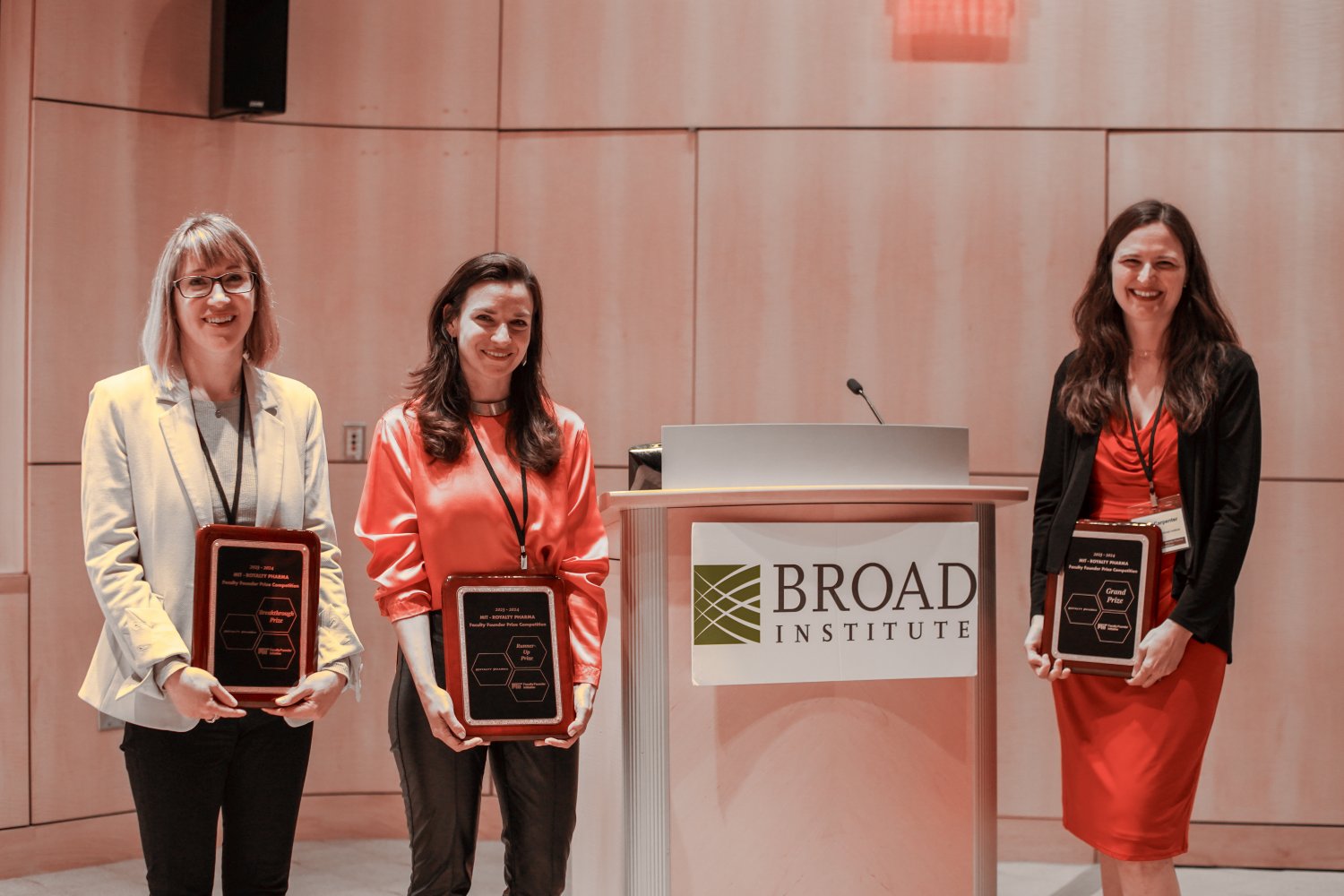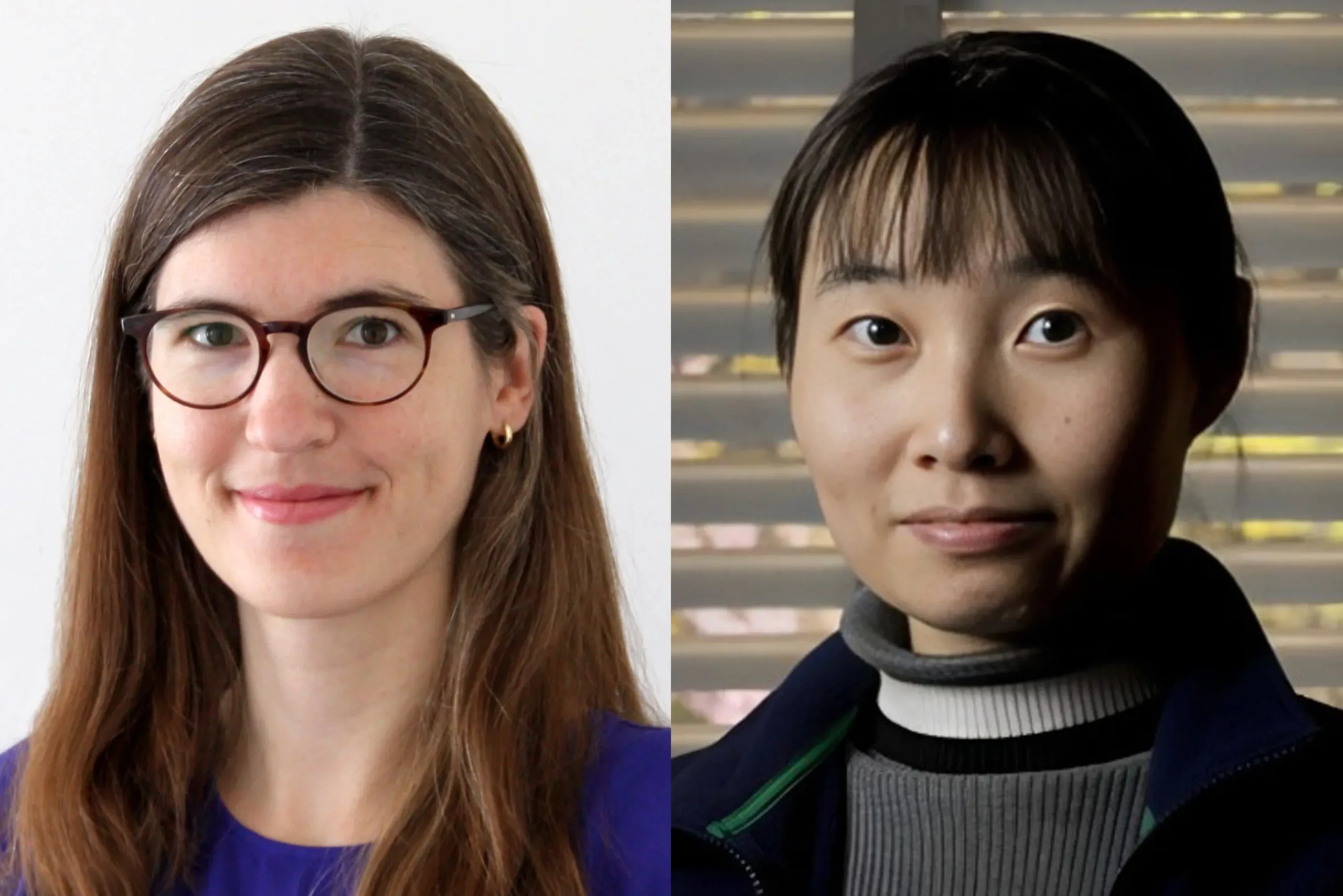The recent 2023-24 MIT-Royalty Pharma Prize Competition has brought to light groundbreaking innovations that stand to benefit patients grappling with intractable cancers, chronic pain, and individuals reliant on battery-powered medical implants. Notable winners this year include accomplished researchers and biotech visionaries Anne Carpenter, Frederike Petzschner, and Betar Gallant ’08, SM ’10, PhD ’13.
Kit Hickey, Executive Director of the MIT Faculty Founder Initiative, highlights the dedication and effort poured into the initiative by the awardees and finalists, which aims to empower female faculty in biotech to bridge the gap between lab research and clinical practice.
“These trailblazers have taken the challenging step of stepping away from their usual lab routines, even when they’re already working tirelessly throughout the week. They’ve dedicated their time to launching their entrepreneurial ventures because they genuinely want their innovations to make a difference in patients’ lives,” explains Hickey. “It’s about taking that leap into entrepreneurship to bring solutions to the forefront.”
Carpenter, a senior director at the Imaging Platform at the Broad Institute of MIT and Harvard and an institute scientist, claimed the prestigious Grand Prize of $250,000 at the competition. Her expertise lies in employing microscopy imaging and advanced computational techniques, including machine learning, to expedite the discovery of therapeutic compounds aimed at shrinking tumors. These compounds are subsequently evaluated through biological assays that simulate tumor environments to predict their efficacy.
In April, Carpenter launched her startup, SyzOnc, attributing her success in part to the resources provided through the MIT Faculty Founder Initiative. Participants in this program gain invaluable mentorship, stipends, and expert advice on matters like company formation, team assembly, fundraising, and intellectual property strategy.
“The initiative provided pivotal insights during crucial decision-making phases, giving us the propulsion needed to get off the ground,” says Carpenter, emphasizing the validation of her scientific ideas and business strategies. “Such credibility is essential when securing funding, especially for first-time entrepreneurs.” She also notes that her team intends to use cutting-edge biological and computational developments to create new therapies for aggressive cancers like sarcoma, pancreatic cancer, and glioblastoma, conditions with historically poor survival rates.
Launched in 2020 by MIT’s School of Engineering and the Martin Trust Center for MIT Entrepreneurship, the Faculty Founder Initiative responds to research by renowned professors Sangeeta Bhatia, Susan Hockfield, and Nancy Hopkins. Their findings revealed that only about 9% of MIT’s biotech startups were founded by women, despite women constituting 22% of the faculty, as highlighted in the 2021 MIT Faculty Newsletter.
This data showed that valuable technologies from female-led labs were not reaching market, leading to lost opportunities, as Hickey notes.
“The MIT Faculty Founder Initiative is integral to fostering a vibrant entrepreneurship ecosystem at MIT. It uplifts visionary faculty working on transformative biotech solutions by providing essential mentorship and resources, facilitating the rapid market entry of their innovations,” states Anantha Chandrakasan, MIT’s chief innovation and strategy officer.
Since its inception in 2021, the prize competition has aimed to elevate emerging female entrepreneurs in the biotech field. This year, the panel of judges spanned academia, healthcare, biotech, and investment sectors. Besides the Grand Prize, two runner-up awards of $100,000 were also presented, including one that went to a researcher from Brown University, the first university to collaborate with MIT in this program.
Frederike Petzschner, an assistant professor at Brown’s Carney Institute for Brain Science, secured the $100,000 2023-24 MIT-Royalty Pharma Faculty Founder Runner-Up Prize for her startup, SOMA, which offers a digital system for managing and alleviating chronic pain.
“We utilize state-of-the-art technology to deliver precision care, focusing on personalized cognitive interventions tailored to each patient,” she explains.
Petzschner credits the Faculty Founder Initiative for accelerating her startup’s progress. “We would still be working towards commercialization without this initiative, likely at an earlier and less structured stage,” she affirms. “The continuous support from our mentors and the program organizers transformed our approach.”
Gallant, an associate professor of mechanical engineering at MIT, received the $100,000 2023-24 MIT-Royalty Pharma Faculty Founder Breakthrough Prize for her startup Halogen, specializing in innovative battery technologies. Her team has developed high-density battery storage to enhance the performance and lifespan of medical devices such as pacemakers.
“Extending battery life can significantly reduce the frequency of invasive replacement surgeries, ultimately improving patient quality of life,” Gallant shared with in a previous interview.
Jim Reddoch, executive vice president and chief scientific officer of Royalty Pharma, expressed the company’s enthusiasm for supporting the competition and the Faculty Founder Initiative. “Royalty Pharma is excited to sponsor the 2023-2024 MIT-Royalty Pharma Prize Competition to drive life sciences innovation at premier institutions like MIT and Brown. By empowering remarkable female entrepreneurs through this program, we aim to transform laboratory innovations into accessible biotech solutions that can reach patients,” says Reddoch.
Bhatia has characterized the MIT Faculty Founder Initiative as a “playbook” designed to channel the groundbreaking technologies of female faculty into the healthcare sector. “To me, changing the game means when you have an invention, you are well-connected enough to know the right time to form a company and who to approach for initial investments. It’s about swiftly catalyzing your team and embarking on your venture,” she adds. “Every invention has the potential to become a medicine in the quickest time possible. That’s the future I envision.”
Hockfield, a co-founder, spoke at the awards ceremony about MIT’s legacy of supporting entrepreneurship, referencing the collaboration with Brown University. “MIT has always been at the forefront of entrepreneurship,” Hockfield emphasized. “Part of being a leader means sharing our approach with the world. This partnership with Brown University for this cohort demonstrates our commitment to influencing academic entrepreneurship on a broader scale.”
Reflecting on the challenges faced by female faculty members, Hickey noted that many expressed a lack of access to essential networks of mentors, investors, and role models. “We encourage you to become part of the network that has been lacking,” Hickey urged the award ceremony audience, which included numerous biotech industry leaders. “Engage with our incredible faculty members and continue supporting their endeavors. Join this crucial movement.”
Photo credit & article inspired by: Massachusetts Institute of Technology



